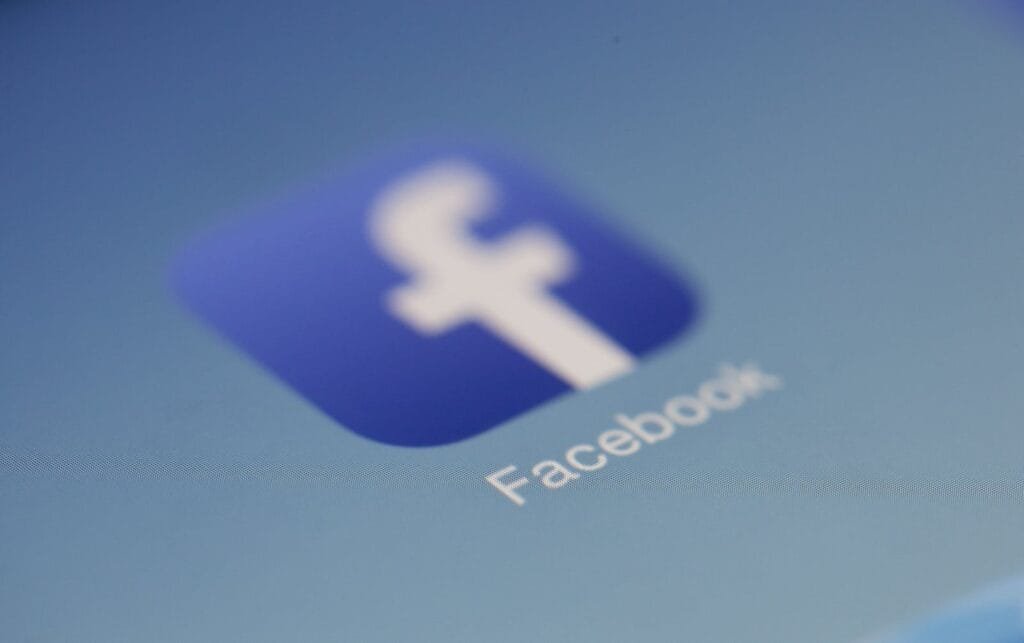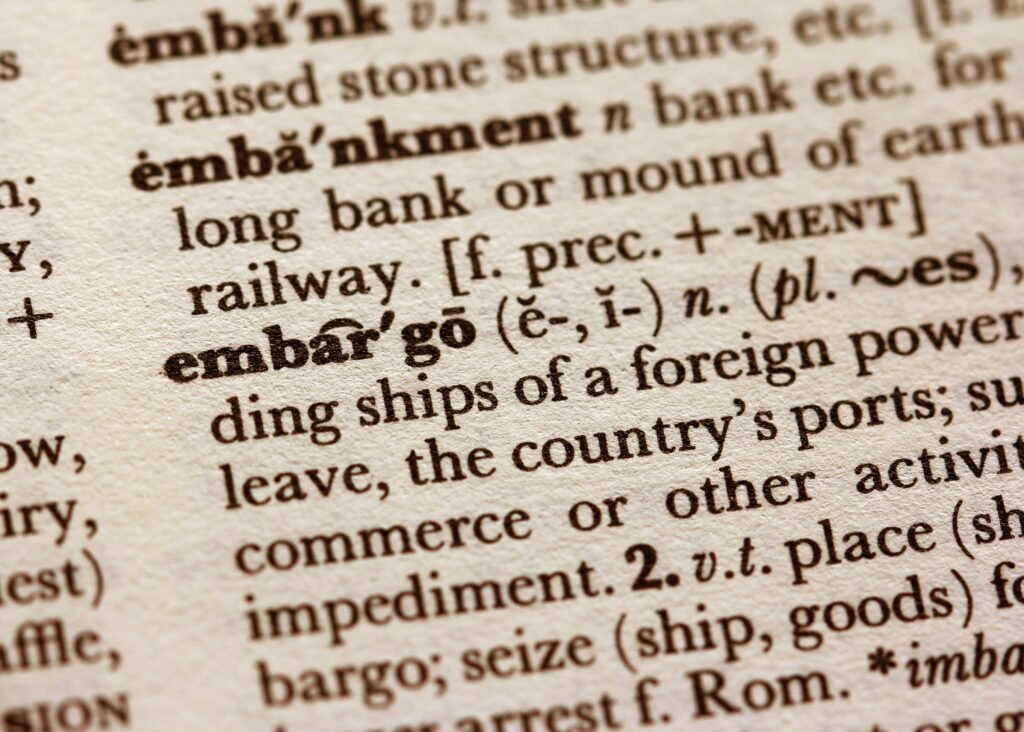WinSavvy Editorial Standards
How this article was created
In today’s ever-evolving digital landscape, the ways in which brands elevate their online presence have become multifaceted. While the SEO community has traditionally emphasized backlinks as the gold standard for off-site authority, a relatively newer metric, “brand mentions,” is emerging as a potent force influencing search engine rankings.
As you chart your digital strategies, understanding this nuanced shift can offer competitive leverage.
This article delves deep into the world of brand mentions, demystifying its impact on SEO, and offers actionable insights to seamlessly integrate it into a holistic digital strategy.

Understanding Brand Mentions
The digital realm continually evolves, and with this transformation, new metrics emerge, helping businesses gauge their impact and presence in the vast online space. Among these metrics, “brand mentions” stand out as a clear indicator of a company’s imprint on the internet. But what exactly are brand mentions, and how have they evolved to be a pivotal off-site SEO metric? Let’s delve deeper.
At its core, a brand mention refers to any instance where your brand name, product, or service is cited on the internet. This could be on a blog, in a social media post, within a review, or even in a casual online discussion. But not all brand mentions are created equal. Let’s classify them:
Types of Brand Mentions
- Linked Mentions: These are the golden mentions for many marketers. Here, the brand is not just mentioned, but there’s also a hyperlink leading back to the brand’s website. Historically, such mentions have been treasured because they not only bring direct traffic but also contribute to a website’s backlink profile, which is a factor in SEO rankings.
- Unlinked Mentions: These are pure mentions without a hyperlink. While they might seem less impactful than linked mentions at first glance, search engines like Google are increasingly recognizing their value as indicators of brand popularity and relevance.
- Positive Mentions: Every brand aims for these. They indicate satisfied customers, successful campaigns, or products that hit the mark. Positive mentions can significantly boost a brand’s reputation and lead to higher trust among prospects.
- Neutral Mentions: These mentions neither praise nor criticize. They’re factual or neutral in tone and are often seen in news articles or reports. While they may not provide the endorsement power of positive mentions, their neutral stance means they don’t harm the brand’s reputation either.
- Negative Mentions: A brand’s nightmare, but also an opportunity. Negative mentions arise from dissatisfied customers, mishandled events, or product failures. They can damage reputation, but when addressed correctly, they can also be turned around, showcasing the brand’s commitment to customer service and improvement.
How SEO is Transforms From Backlinks to Brand Mentions
To appreciate the ascendancy of brand mentions, we need to venture a bit into the past. In the early days of the internet, search engines like Google primarily gauged the importance of a website based on the number and quality of backlinks it had. This led to the ‘link-building era,’ where websites vied for as many backlinks as possible to climb search rankings.
However, as search engine algorithms evolved, they began to realize that raw link counts could be manipulated. Sites began to indulge in ‘link farms’ and unnatural linking strategies, diluting the quality of search results. Recognizing this, search engines started to look beyond mere links to assess the genuine popularity and relevance of websites. Enter brand mentions.
The shift was subtle but significant. While backlinks remained a potent SEO factor, search engines began to factor in how often a brand was mentioned across the web, even if those mentions didn’t include a link. This change recognized the natural way people talked about brands online – not always linking but frequently mentioning. Brand mentions, thus, became a more organic, authentic metric to gauge a brand’s presence and influence online, paving the way for the evolution of off-site SEO metrics we see today.
In essence, brand mentions filled the gap left by the potential manipulations of backlink strategies, offering a more holistic view of a brand’s standing in the digital realm.
How Search Engines Interpret Brand Mentions
Google’s Perspective on Implied Links (Unlinked Mentions)
Search engines, primarily Google, are continually refining their algorithms to deliver the most relevant and high-quality results to users. To this end, Google started recognizing the value of brand mentions, even those without direct links. Referred to as “implied links,” these unlinked mentions offer search engines a more organic understanding of a brand’s online authority and reputation. After all, if people are talking about a brand, it must hold some significance, right? Google’s Gary Illyes once hinted at this, suggesting that the search engine does consider mentions in its ranking algorithm, marking a potential shift from traditional link-based metrics.
Sentiment Analysis and its Role in Interpreting Brand Mentions
It’s not just the volume of brand mentions that search engines consider; the sentiment behind those mentions holds weight too. Through advanced algorithms, search engines can perform sentiment analysis to gauge whether a brand is being talked about positively, neutrally, or negatively. Such analytical capabilities ensure that brands benefiting from positive public sentiment get an SEO boost, while those submerged in controversies or negative PR might see detrimental effects.
The Importance of Relevance and Authority in Brand Mentions
When your brand is mentioned, the relevance and authority of the source matter. A mention in a high-authority publication or industry-specific blog carries more weight than a fleeting reference in an obscure forum. Furthermore, the contextual relevance of the mention also plays a role. For instance, a tech startup getting mentioned in a renowned tech magazine would be more beneficial than a mention in a food blog, even if both sources have high authority.
Brand Mentions vs. Backlinks: What’s the Difference?
Traditional Backlinking and its Value
Historically, backlinks have been the bedrock of off-site SEO. Essentially acting as “votes of confidence,” they signified that a website was trustworthy and offered valuable content. Search engines used backlinks as primary signals to determine a site’s authority and relevance. While backlinks continue to be critical ranking signals, their value is now determined by quality over quantity.
The Shift from Quantity to Quality: How Brand Mentions are Changing the Game
The pivot from sheer backlink numbers to the quality of brand mentions is a testimony to the maturation of search algorithms. Brand mentions, especially when derived from authoritative sources, can serve as genuine endorsements, devoid of the manipulations often associated with link-building tactics. They signify organic brand recognition and trust, attributes that search engines are keen to reward.
Situations Where Brand Mentions Can Be More Valuable Than Backlinks
In certain contexts, brand mentions can surpass the value of backlinks:
Influencer Testimonials: An influencer mentioning your brand favorably, even without linking, can lead to increased visibility and trust.
Press Mentions: Coverage in reputed media outlets, even without a link, boosts brand credibility.
User Reviews: Positive mentions in reviews and testimonials, even if unlinked, play into local SEO and foster trust among potential customers.
Incorporating Brand Mentions into SEO Strategy
Tactics to Gain Organic Brand Mentions
As the digital landscape evolves, simply chasing backlinks is no longer enough. Brands must prioritize organic brand mentions to stay ahead. Here are some tactics to achieve this:
Produce High-Quality Content: Consistently producing authoritative, relevant, and engaging content will naturally lead to more mentions. This could be in the form of insightful blog posts, whitepapers, videos, or podcasts.
Engage with Your Audience: Regularly engaging with your community, responding to comments, and addressing concerns can spark discussions and organic mentions.
Host Webinars and Workshops: These platforms allow you to showcase expertise and provide value, leading to increased brand visibility and mentions.
Strategies like Content Marketing, Influencer Collaborations, and Public Relations
Content Marketing: The power of compelling storytelling cannot be underestimated. Brands that leverage content marketing to narrate their journey, share success stories, or provide solutions, naturally attract mentions.
Influencer Collaborations: Partnering with influencers in your niche can lead to increased brand mentions across various platforms. An influencer’s endorsement can be a powerful amplifier for brand visibility.
Public Relations: PR is not just about damage control. A well-strategized PR campaign can create buzz, leading to both media and organic mentions. Launching new products, sponsoring events, or even releasing annual reports can garner attention and mentions.
Monitoring and Responding to Brand Mentions
Staying proactive is the key. Using tools (which we’ll delve into later), monitor brand mentions in real-time. Acknowledge positive mentions to build relationships and address negative ones promptly to manage reputation.

How to Track and Measure Brand Mentions
Tools like Google Alerts, Mention, Brand24.
- Google Alerts: A free tool by Google that sends notifications whenever your brand is mentioned online. Ideal for startups or brands with a limited budget.
- Mention: This tool offers real-time monitoring across various platforms, providing insights into brand visibility, sentiment, and competitive analysis.
- Brand24: An advanced tool that gives insights into sentiment analysis, mention volume, and source authority, helping brands fine-tune their strategies.
Metrics to Consider: Volume, Sentiment, Source Authority, Etc.
Volume: Track the number of mentions to gauge brand visibility and awareness over time.
Sentiment: Analyze whether mentions are positive, negative, or neutral to understand public perception and tailor strategies accordingly.
Source Authority: Consider the authority and relevance of the source. A mention on an industry-leading blog holds more weight than a passing comment on a forum.
Setting Up Efficient Monitoring Systems for Real-Time Tracking
Set Clear Parameters: Define what constitutes a mention – is it just the brand name, or specific products and services too?
Integrate Multiple Tools: Use a combination of free and paid tools to ensure comprehensive coverage.
Regular Reporting: Dedicate resources to analyze and report findings periodically. This helps in tweaking strategies for better results.
The Role of Social Media in Brand Mentions
Understanding Social Signals and Their Indirect Impact on SEO
The age of social media has created a new dynamic for SEO. While Google has stated that social signals (likes, shares, tweets, etc.) are not direct ranking factors, there’s an undeniable correlation. A piece of content that receives high engagement on social media can experience increased visibility, potentially leading to more organic traffic and higher search rankings.
Brands that resonate well with their audience on platforms like Twitter or Instagram naturally cultivate organic mentions. Such mentions, especially when coming from authoritative and influential accounts, amplify the brand’s reach, paving the way for further engagements, shares, and potentially, backlinks.
Tactics to Increase Brand Mentions on Platforms like Twitter, Facebook, and Instagram

Twitter:
- Engage in trending topics and industry discussions.
- Collaborate with influencers for Twitter chats or takeovers.
- Use and monitor branded hashtags.

Facebook:
- Host live sessions discussing industry trends or product launches.
- Encourage user-generated content by creating engaging challenges or contests.
- Collaborate with complementary brands for joint campaigns.

Instagram:
- Leverage the power of Stories and Reels for brand narratives.
- Collaborate with influencers for shoutouts or product placements.
- Encourage user tags in posts and stories when they use your products or services.
Engaging with Users and Influencers for Organic Mentions
Building genuine relationships is the cornerstone of gaining organic mentions. By responding to comments, reposting user-generated content, or collaborating with influencers for genuine product reviews, brands can foster an environment where mentions are naturally integrated into conversations.
Managing and Responding to Negative Brand Mentions
The Potential SEO Implications of Negative Mentions
In the age of the digital echo chamber, a single negative mention can snowball rapidly. While it may not directly impact SEO rankings, a surge in negative publicity can lead to decreased trust, impacting click-through rates, user engagement, and eventually, organic rankings.
Moreover, if a negative review or mention ranks high on search results for brand-related queries, it can tarnish the brand’s image, discouraging users from engaging further. In the long run, this can indirectly influence SEO metrics.
Strategies for Reputation Management and Damage Control
- Immediate Response: Address negative mentions promptly. An immediate and professional response can mitigate potential damages.
- Transparency: If a mistake has been made, acknowledge it. Apologize publicly and detail the steps being taken to rectify the situation.
- Engage Offline: In cases of severe complaints, take the discussion offline. This prevents a public back-and-forth and allows for a more comprehensive resolution.
- Leverage Positive Mentions: Encourage satisfied customers to share positive experiences. Over time, this can drown out isolated negative mentions.
Case Studies of Brands Effectively Navigating Negative Mentions
Example: A renowned e-commerce platform once faced backlash for a product mishap during a festive sale. Instead of ignoring the issue, the brand addressed it head-on, apologizing publicly, and offering compensation. They also leveraged influencers to transparently discuss the issue and the corrective measures taken. This proactive approach not only managed the immediate crisis but enhanced their brand reputation in the long run.
Encouraging Positive Brand Mentions
Leveraging User-Generated Content (UGC)
In today’s interconnected digital era, user-generated content (UGC) is a goldmine. It offers brands a trove of authentic narratives, photos, reviews, and more that can be showcased to build trust, drive engagement, and foster community. A candid picture from a customer using your product, or an honest testimonial, can be far more influential than even the slickest of ad campaigns.
For instance, if you’re a fashion brand, encouraging customers to share photos in their new outfits with a particular hashtag can not only boost social media engagement but also lead to spontaneous brand mentions across various platforms.
Tactics such as Contests, Brand Ambassador Programs, and Community Engagement
Contests: Launching social media contests where users can win something of value in exchange for mentions or testimonials can be highly effective. It creates a buzz around the brand and can exponentially increase the number of brand mentions in a short span.
Brand Ambassador Programs: Engaging with influencers or loyal customers and turning them into brand ambassadors can be a masterstroke. They naturally mention the brand in their content, driving their audience to check out and possibly engage with the brand.
Community Engagement: Hosting community events, webinars, or workshops can lead to attendees mentioning and discussing the brand on their platforms. These organic conversations boost the brand’s credibility and digital presence.
Collaborating with Influencers and Bloggers for Brand Shout-outs
Influencer marketing, when done right, can be a game-changer. By partnering with influencers whose audience aligns with your brand, you can gain authentic mentions that resonate deeply with their followers. A simple shout-out, a detailed product review, or a collaborative content piece can lead to significant brand visibility and enhanced trustworthiness.
The Role of Unlinked Brand Mentions in Organic Ranking
How Unlinked Mentions Boost Brand Authority
An unlinked mention, while it may not have the direct SEO weight of a backlink, is still a nod to your brand’s authority. When reputable platforms or individuals talk about your brand without necessarily linking back, it’s an indication of your brand’s prominence and recognition in the industry. Search engines, especially Google, take cognizance of these mentions, using them as signals to gauge a brand’s trustworthiness and relevance in the digital ecosystem.
Strategies to Convert Unlinked Mentions into Backlinks
- Monitor Unlinked Mentions: Using tools like Brand24 or Mention, identify when and where your brand gets mentioned.
- Reach Out: Politely request the author or website owner to convert the mention into a link. Frame it in a way that shows them the mutual benefits – perhaps the linked mention offers additional context or value to their readers.
- Offer Additional Value: Provide additional resources or insights that can complement their existing content. This increases the chances of them linking back to your site.
Ways to Encourage More Unlinked Mentions
Be Newsworthy: Regularly share insights, reports, or industry trends that can be picked up by media outlets or bloggers.
Engage in PR: A well-orchestrated PR campaign can lead to mentions in reputed publications.
Collaborate: Partner with non-competing brands or influencers on projects. This often leads to mutual mentions across platforms.
Case Studies: Brands Leveraging Mentions for SEO Success
Success stories always make for compelling narratives, and the world of SEO is no exception. These case studies, rooted in real-world scenarios, shed light on how different brands, irrespective of their size or domain, have skillfully utilized brand mentions to augment their SEO success.
Here are some case-studies on how some businesses used branded content marketing and influencer marketing to boost their digital marketing goals.
The Future of Brand Mentions in SEO
Predictions Based on Current Trends and Search Engine Updates
As the digital landscape continues to evolve, brand mentions will likely play an even more crucial role in SEO. Search engines are perpetually refining their algorithms to focus on user experience and genuine value, and brand mentions fit perfectly into this ethos.
- Voice Search & Brand Mentions: As voice search becomes more popular, brands frequently mentioned in a positive context will likely have a distinct advantage. Imagine a scenario where a user asks a voice assistant for product recommendations; those with strong brand mentions may surface more frequently.
- AI’s Role in Evaluating Mentions: With AI’s growing integration into search algorithms, it will better gauge the sentiment, context, and relevance of brand mentions, adjusting rankings accordingly.
- Shift Towards Authenticity: Authentic and organic brand mentions will likely hold more weight than forced or paid mentions, pushing brands to engage genuinely with their audiences.
Incorporating Voice Search, AI, and Other Evolving Technologies
Brands should anticipate the impact of these technologies on their SEO strategies. By ensuring their content is optimized for voice search, fostering genuine brand interactions, and keeping abreast of AI’s influence on search, brands can position themselves favorably for the future.
Maintaining Brand Integrity in an Ever-evolving Digital Landscape
While chasing the SEO benefits of brand mentions, it’s crucial to maintain brand integrity. It’s easy to get caught up in tactics to increase mentions, but brands must ensure they remain authentic, genuine, and consistent in their communications and actions.
Wrapping it up
In today’s evolving SEO landscape, brand mentions have emerged as a significant factor influencing search engine rankings and overall digital reputation. These mentions, whether linked or unlinked, provide search engines with contextual insights into a brand’s authority and relevance in its industry. It’s evident that as algorithms continue to prioritize genuine user engagement and value, brand mentions will become even more critical.
Brands should, therefore, focus on fostering organic, positive mentions while maintaining authenticity in their interactions. As we navigate this digital era, keeping brand integrity at the forefront will ensure sustainable growth and SEO success.
Read Next:





















Comments are closed.